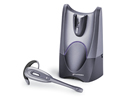'ZDNET Recommends': What exactly does it mean?
ZDNET's recommendations are based on many hours of testing, research, and comparison shopping. We gather data from the best available sources, including vendor and retailer listings as well as other relevant and independent reviews sites. And we pore over customer reviews to find out what matters to real people who already own and use the products and services we’re assessing.
When you click through from our site to a retailer and buy a product or service, we may earn affiliate commissions. This helps support our work, but does not affect what we cover or how, and it does not affect the price you pay. Neither ZDNET nor the author are compensated for these independent reviews. Indeed, we follow strict guidelines that ensure our editorial content is never influenced by advertisers.
ZDNET's editorial team writes on behalf of you, our reader. Our goal is to deliver the most accurate information and the most knowledgeable advice possible in order to help you make smarter buying decisions on tech gear and a wide array of products and services. Our editors thoroughly review and fact-check every article to ensure that our content meets the highest standards. If we have made an error or published misleading information, we will correct or clarify the article. If you see inaccuracies in our content, please report the mistake via this form.
Plantronics CS60


Plantronics CS60
pros and cons
- Excellent sound quality compatible with virtually all phone systems good operating range.
- Costly ear clips can be uncomfortable requires lifter accessory to be truly useful.
We're getting used to the idea of cordless headsets for mobile phones, but Plantronics has applied the same principle to the office phone. The CS60 is a cordless headset that attaches to a standard phone to provide wire-free conversations for land line calls.
Rather than a wireless networking technology such as Bluetooth, the CS60 uses the DECT (Digitally Enhanced Cordless Telephone) system used in most domestic cordless phones. This has a much greater range than Bluetooth, and can be as far as 100m in ideal conditions. Inside your office, Plantronics claims you can expect a range of 50m.
The £249 (ex. VAT) CS60 consists of a base station that connects to your existing desk phone, and a headset that clips over your ear. The base station contains the electronics to connect into your existing desk phone, the transmitter and battery charger for the headset. It's normally connected between your desk phone's base and handset, so that the corded handset ends up being connected to the CS60. Plantronics says that this allows a greater level of compatibility with different phone systems -- even ISDN or other digital phones. A dial on the side of the base station allows you to select one of four different phone line standards, which it's claimed will cover virtually all phones.
The headset features a call answer button and a volume control rocker switch. Depressing the volume control mutes the headset microphone. The headset's small, user-replaceable battery gives nine hours' talk time -- plenty for all but the very longest of work days. The battery is recharged whenever the headset is in the base station, so you're unlikely ever to run out of power.
The CS60's biggest drawback is its inability to initiate a call while you're away from your desk. Since there's no keypad on the headset, there's no way of dialling a number. This means that you'll have to dial a call before leaving your desk, if that's what you want to do. Other than that, it's for taking calls only.
To be of most use, the CS60 needs to be used in conjunction with a handset lifter accessory, the £50 (ex. VAT) HL10. This is a motorised arm that lifts your phone's handset clear of the off-hook switch, thus activating the phone. Without this add-on, you wouldn't be able to answer a call remotely, making the headset pretty pointless.
The CS60's IntelliStand feature allows you to answer calls simply by taking the headset out of its stand. Enable IntelliStand and the lifter will take the handset off the hook a few seconds after you've removed the headset. Replace the headset and the lifter will hang up again. The delay isn't quite enough to get the headset clipped to your ear if you're not quick, and it isn't configurable. The other annoyance with using IntelliStand is that the handset is lifted even if the phone isn't ringing at the time. If this is likely to cause a problem, you can turn IntelliStand off, and the phone will still hang up when you replace the headset.
Top ZDNET Reviews
The standard over-the-ear clips used to hold the headset in place can become uncomfortable after an hour or more, so if you're planning all-day use of the CS60, it's probably worth investing in the optional headband or the round-the-neck supports. It's not the weight that's the problem, but the shape of the clips. If the clips do suit the shape of your ear, and give a firm grip without pinching, the headset is light enough for prolonged use.
The other thing to consider, at least for the first few weeks of use, is that you'll look odd to the other people in your office. Since the microphone is on a stem to aid noise cancelling, the CS60 headset is anything but unobtrusive. However, people should get used to seeing you wearing it after a while -- it doesn't interfere with your work in any other way.
We found the sound quality of the CS60 to be excellent, for both the user and the caller at the other end of the line. When you have an incoming call, the headset bleeps to warn you, and we found the bleeps to be slightly quiet, but audible.
The CS60 is a good idea, and for the Reviews team, where much of the day involves moving around between a desk and the Lab, it means that calls can be taken which would otherwise have gone to voicemail, resulting in another round of 'telephone tennis'. However, whether this justifies the £300 (ex. VAT) cost of the whole system -- which is what we'd need -- is another question.
While we appreciate the level of engineering that's gone into the CS60, it's never going to be a mainstream product at this price. The cost of the system could be reduced by incorporating the wireless system into a desk phone, thus eliminating the compatibility circuits in the base station and the lifter accessory. Plantronics says this would then reduce the number of phone systems it could work with, but in the UK we have a well-defined and well-understood standard for analogue phones, and we suspect very few people -- in this country at least -- would be unable to use a combined phone/wireless system. We think Plantronics would sell far more units this way.
The CS60 is a good, useful product. It's just that many people who would like to take calls away from their desk will find it hard to justify the cost unless they're away from their desk a lot, and risk losing business through it. But if you can justify paying for the CS60, it's a liberating experience.